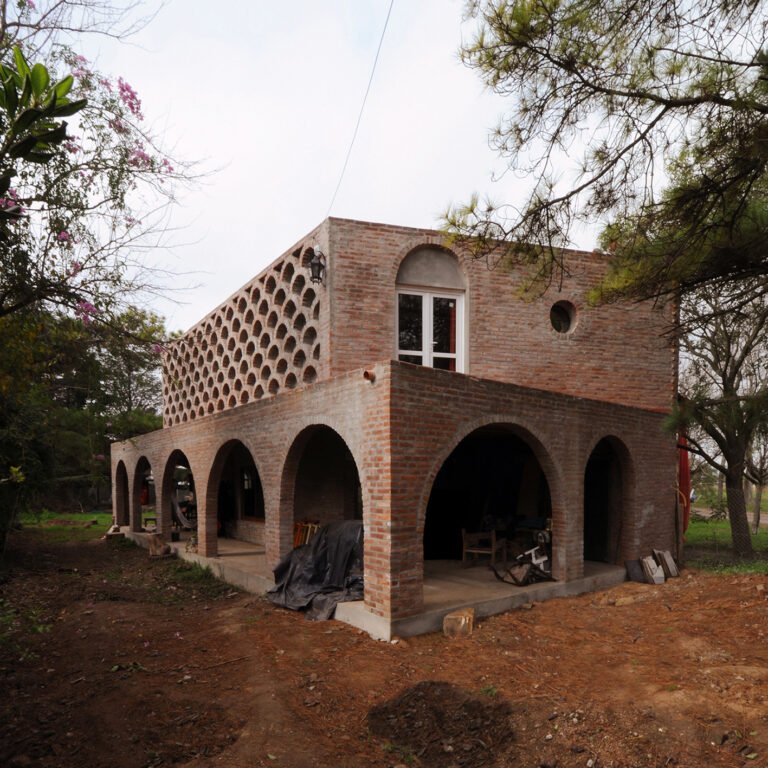yuko nagayama’s transparent teardrop-shaped tents dot a tranquil forest in japan
yuko nagayama weaves drop-shaped tents into Japanese forest
Tokyo-based architecture firm Yuko Nagayama & Associates has constructed a series of transparent teardrop-shaped tents within a white birch forest in Hokuto City, Yamanashi Prefecture, Japan. The size, height, and position of the tents were determined by 3D scans of the natural environment, such as the position of the trees, the direction of the branches, and the spread of the leaves. In this way, the surrounding greenery is reflected not only on the surface of the tents, but also in their design. The project was completed on the occasion of the Hokuto Art Program Ed.1, which invites creatives from all over Japan to exhibit their unique tent designs as works of art.
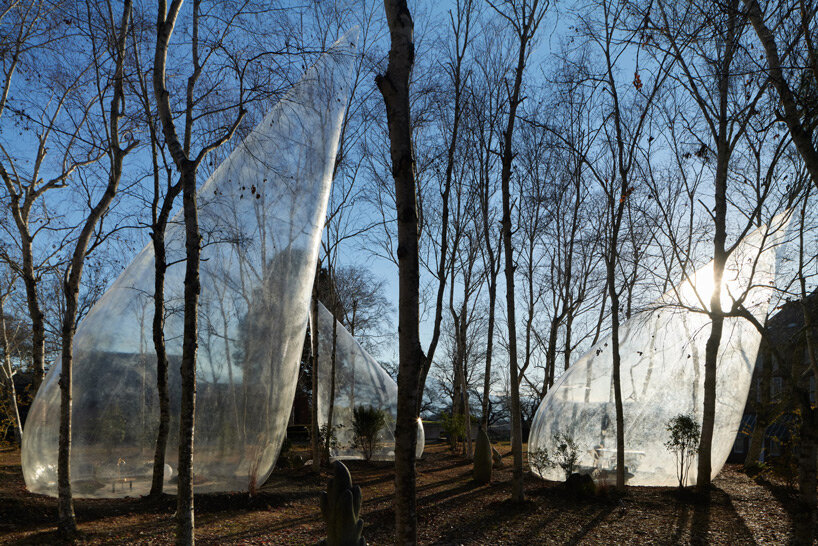
the size, height, and position of the tents were determined by 3D scans of the natural environment
all images courtesy of Daici Ano
highlighting the experience of looking up at a forest
Yuko Nagayama’s project seeks to highlight the experience of standing in the forest and looking up at the surroundings. Since a tent usually hinders this experience, the Japanese architects came up with the idea of making the structures completely transparent.
The teardrop-shaped tents were set up in a white birch forest, each with its own function and purpose. One could be used as a sleeping place, another as a reading corner. When viewed from within the tent, the outdoor landscape blurs a bit or is outshone by a glow of light, adding a somewhat mystical touch to the mundane scene. Because the translucent walls cannot provide privacy or protection from the cold, users should bring sleeping bags if they plan to spend the night there.
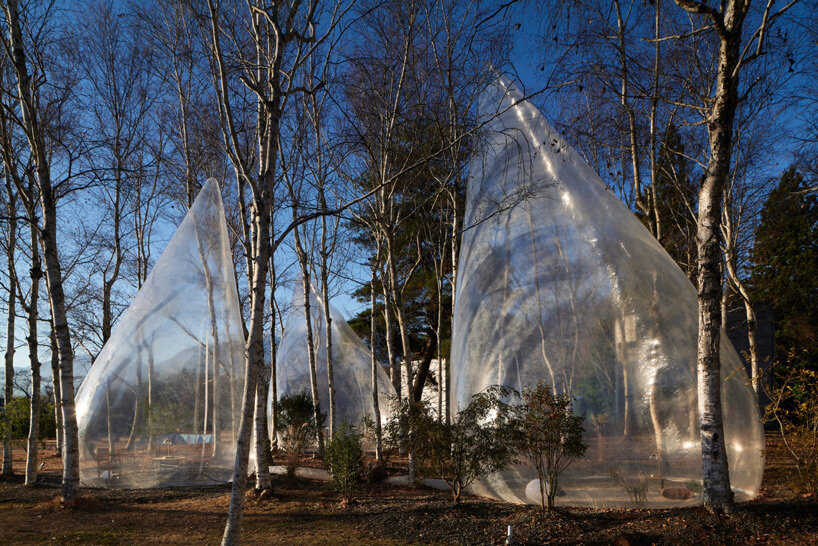
each of the tents has a round shape with a pointed top, just like a teardrop
rounded body and pointed top – the shape of a teardrop
Although Yuko Nagayama & Associates had the option of setting up the tents in an empty meadow, the team chose the dense forest as the project site. Each of the tents has a round shape with a pointed top, just like a teardrop or a traditional Okiagari Koboshi Japanese doll. Each tent faces a different direction. The structures are tall and their slanted tops stand out among the trees, even from a distance. The spacing between the structures was determined based on accurate 3D scenes of the forest created using a technology called Matter-Port.
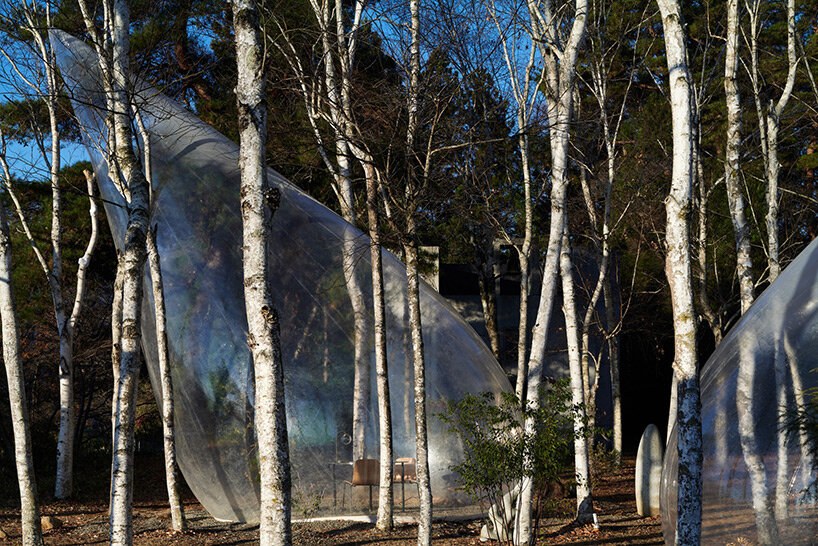
each tent faces a different direction
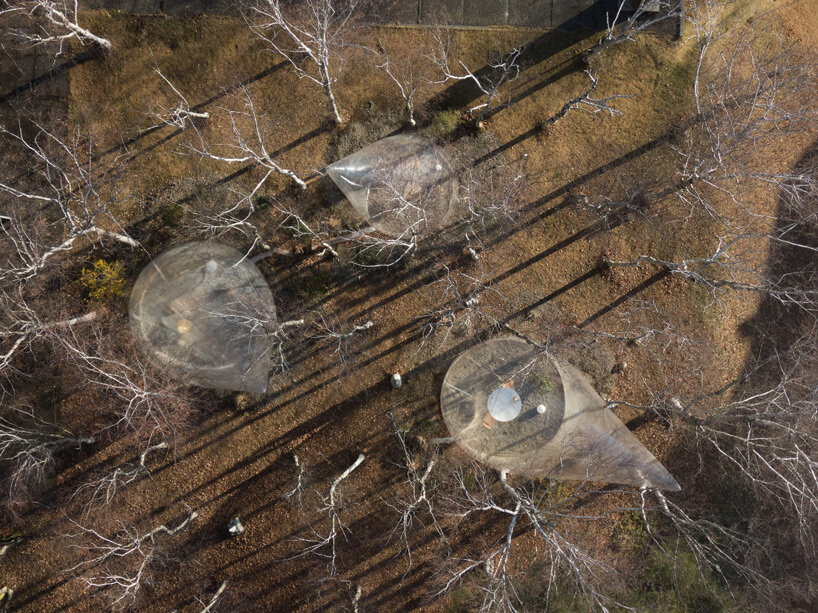
Yuko Nagayama’s project seeks to highlight the experience of standing in the forest and looking up at the surroundings

